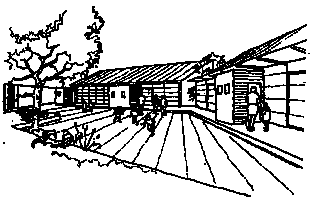|
|
||||||
| There
are also changes to the post-16 curriculum taking place. These are
partly in response to dissatisfaction with A-level courses. Some students
see them as the path of least resistance towards getting a job; other
pupils don't even stay on post-16, many of them feeling that elements
of the curriculum are no longer relevant. Other contributory factors
include pupils feeling a lack of recognition for their work and a
lack of good social areas for pupils. (See Section
2A.5 on social and movement spaces). Schools and colleges are now able to offer young people opportunities to study a more diverse range of subjects post-16. These include AS qualifications, designed to encourage the take-up of a wider range of subjects in the first year of post-16 study, and vocational A-levels replacing advanced GNVQs. In September 2000, the government introduced a new stage of education for three to five year olds: the foundation stage. Early learning goals were established to improve continuity between early years education and primary schooling. It is accepted that children will be learning in a range of places at this age, including nursery schools and at home with a childminder. Specially designated Early Excellence Center's reflect best practice in early years education. These curriculum developments and qualification changes are likely to affect the character of schools and their accommodation requirements. |
|
||||||
|



